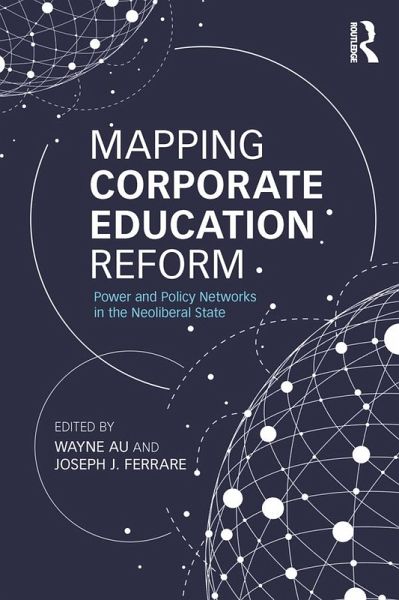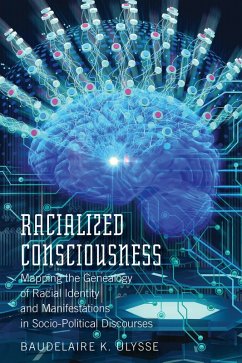
Mapping Corporate Education Reform (eBook, PDF)
Power and Policy Networks in the Neoliberal State
Redaktion: Au, Wayne; Ferrare, Joseph J.
Versandkostenfrei!
Sofort per Download lieferbar
49,95 €
inkl. MwSt.
Weitere Ausgaben:

PAYBACK Punkte
25 °P sammeln!
Mapping Corporate Education Reform outlines and analyzes the complex relationships between policy actors that define education reform within the current, neoliberal context. Using social network analysis and powerful data visualization tools, the authors identify the problematic roots of these relationships and describe their effects both in the U.S. and abroad. Through a series of case studies, each chapter reveals how powerful actors, from billionaire philanthropists to multinational education corporations, leverage their resources to implement free market mechanisms within public education....
Mapping Corporate Education Reform outlines and analyzes the complex relationships between policy actors that define education reform within the current, neoliberal context. Using social network analysis and powerful data visualization tools, the authors identify the problematic roots of these relationships and describe their effects both in the U.S. and abroad. Through a series of case studies, each chapter reveals how powerful actors, from billionaire philanthropists to multinational education corporations, leverage their resources to implement free market mechanisms within public education.
By comprehensively connecting the dots of neoliberal education reforms, the authors reveal not only the details of the reforms themselves, but the relationships that enable actors to amass troubling degrees of political power through network governance. A critical analysis of the actors and interests behind education policies, Mapping Corporate Education Reform uncovers the frequently obscured operations of educational governance and offers key insights into education reform at the present moment.
By comprehensively connecting the dots of neoliberal education reforms, the authors reveal not only the details of the reforms themselves, but the relationships that enable actors to amass troubling degrees of political power through network governance. A critical analysis of the actors and interests behind education policies, Mapping Corporate Education Reform uncovers the frequently obscured operations of educational governance and offers key insights into education reform at the present moment.
Dieser Download kann aus rechtlichen Gründen nur mit Rechnungsadresse in A, B, BG, CY, CZ, D, DK, EW, E, FIN, F, GR, HR, H, IRL, I, LT, L, LR, M, NL, PL, P, R, S, SLO, SK ausgeliefert werden.













